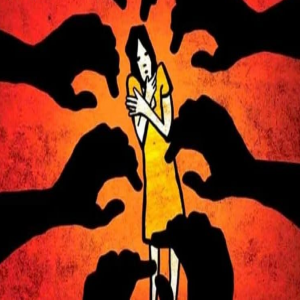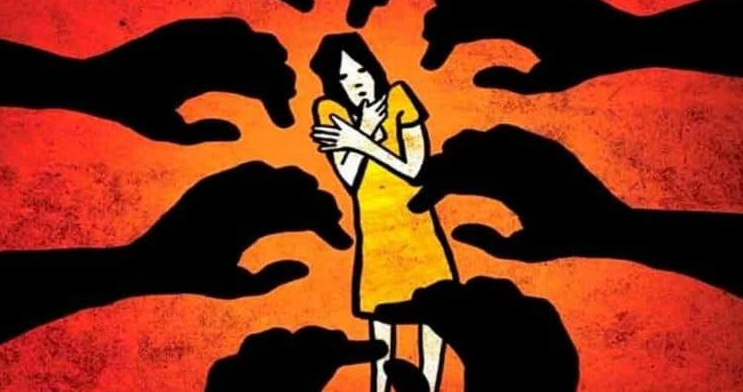
.png) Jaswant Kaur
Jaswant Kaur

The 78th Independence Day has come and gone. Across India, the tricolour was hoisted high, patriotic songs filled the air, and speeches echoed the achievements of a nation that has come a long way since 1947.
As the flags from Independence Day are folded and stored away, we find ourselves once again confronting a brutal truth that no speech, however long or grand, can overshadow. The rape and murder of a young doctor at RG Hospital in Kolkata is a grim reminder that while we celebrate the progress our nation has made, we cannot ignore the fundamental issues that continue to plague our society. This was not just another crime; it was an assault on the very ideals that our nation was built upon—freedom, dignity, and justice for all.
In the longest speech ever, our Prime Minister mentioned women's safety, the contribution of lakhpati didis, women-led development, 75,000 more medical seats, a vision of Viksit Bharat 2047, and so on. But does this ensure that we as a country will not witness another Nirbhaya or R G Kar Hospital case?
A young passionate doctor, who had vowed to devote her life to healing others, saving lives, offering comfort and care, and to fulfilling her calling, was not only brutally raped but also mercilessly murdered at a place she trusted the most.
This is not just the story of one woman; it is a reflection of the deep, systemic rot that allows such heinous acts to occur. It is a stark reminder that even in places dedicated to care and compassion, the shadow of violence can strike with terrifying force. It is an assault on the very fabric of our society. It is a brutal reminder that in India, even after the countless promises of change following the Nirbhaya case, women remain vulnerable, and their safety remains perpetually at risk, even in spaces where they should feel most secure.
The entire community, including the medical fraternity, is devastated. Colleagues who once shared the joy of saving lives are now bound by shared grief and fear. Patients who once entered RG Hospital with trust and hope now cross its threshold with a sense of dread, wondering if they are truly safe. The medical fraternity, already strained by the demands of their profession, grapples with the horrifying reality that their sanctuary has become a place of terror.
The perpetrator of this horrific act has been apprehended, but the swiftness of this action offers little solace to a society that is still reeling from the shock. While it is crucial that the wheels of justice turn quickly, it raises the painful question: Why must women endure such unimaginable horrors before the system takes notice? Why must a life be snuffed out before the call for justice is heard? Why can't we ensure the safety of women, which is a basic fundamental right of every human being in this country?
The young doctor, whose life was so brutally cut short, will never see justice herself. She will never return to the life she loved, the patients she cared for, or the future she deserved. Her dreams, ambitions, and very existence have been taken away in an instant by an act of barbarity that defies comprehension. What remains is a void, an emptiness that can never be filled, and a burning need for justice, not just for her but every woman in India.
The pursuit of justice, in this case, is crucial, but it is also fraught with the fact that no punishment, even death, can ever truly compensate for the loss of life. The legal proceedings, while necessary, comprise a cold and distant process that cannot heal the wounds left by such a brutal crime. Yet, it is vital and crucial. It certainly offers a statement that such acts of violence will not be tolerated and that the full weight of the law will be brought down on those who commit such atrocities.
But justice, in this case, must go beyond the courtroom. It must be a call to action, a demand for systemic change. We cannot simply mourn this young doctor and then return to our lives, waiting for the next tragedy to occur. We must confront the root causes of such violence, challenge the societal norms that allow it to persist, and work tirelessly to create a world where women are truly safe.
Hospitals, workplaces, and public spaces should be safe places, not places of fear. Legislators have certainly made provisions to ensure that robust systems are in place to prevent such crimes at workplaces and that victims, when crimes occur, are supported and not abandoned. Yet, a lot has to be done to ensure proper implementation and compliance. Yet, there have been several instances where women fear speaking up and keep things to themselves. More often than not, women are blamed for any kind of crime they experience. It is common to hear comments such as "tumne hi dhang ke kapre nahi dale honge nahi to tumhe hi ko kyun tang kiya usne (Why would a man be teasing only you. You must not have worn the right kind of clothes)." It is as if a woman's clothes keep the morality of men in check! In other words, it has more to do with systemic and cultural change.
The data says nearly 70% of women in India face sexual harassment in the workplace. The National Crime Records Bureau (NCRB) reported over 31,000 cases of rape in 2022, and countless more instances of harassment and violence remain unreported. These numbers paint a sobering picture that starkly contrasts the vision of a women-led future.
In the years since independence, India has made great strides in many areas, but the safety of women remains a glaring shortcoming. Our economic growth, technological advancements, and global influence mean little if we cannot ensure our women's basic safety and dignity. True freedom will only be realized when every woman in India can walk freely, work safely, and live without the constant threat of violence.
As we reflect on our journey since 1947, we must ask ourselves: What does independence truly mean in a country where women are still fighting for their basic rights? The answer lies not just in our government's actions but in our society's attitudes. We must challenge the deeply ingrained misogyny that allows such crimes to occur, and we must hold ourselves accountable for the safety and dignity of our women.
The RG Hospital case has brought to light the urgent need for systemic change. It is not enough to create opportunities for women; we must also create environments where they can pursue these opportunities safely.
The vision of Viksit Bharat 2047 that Modi showed us should first envision a safe and violence-free "independent" life for each and every woman and girl of this country, irrespective of whether she is working or an unsung housewife or a school-going girl or a budding entrepreneur or a girl who is just in the womb of her mother, anxious to come out and experience the outside world!